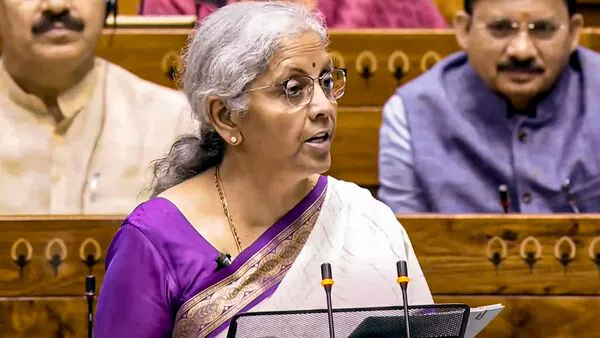On July 23, 2024, Finance Minister Nirmala Sitharaman presented the Union Budget 2024-25, emphasising a multifaceted approach to drive India’s economic growth. Key areas of focus include bolstering the agricultural sector, introducing employment schemes, providing financial support to MSMEs, fostering infrastructural development, and targeting a fiscal deficit of 4.9% with an aim to reduce it to 4.5%.
The budget highlights several initiatives aimed at strengthening personal consumption and long-term economic growth. By enhancing agricultural incomes and extending credit for formal employment creation, the government aims to set the economy on a sustainable growth path. Additionally, the budget seeks to boost domestic consumption through direct tax and capital gains adjustments and promote tourism as a vital sector.
A significant feature of the budget is the introduction of an employment-linked incentive scheme, particularly for the manufacturing sector, identified as a crucial driver for economic growth. This scheme offers incentives for companies hiring first-time employees, benefiting 30 lakh youth and their employers, with an outlay of Rs 52,000 crore over six years. The incentives are linked to the EPFO contributions of both employees and employers for the first four years of employment.
To further address employment, the government announced a new internship program targeting one crore youth over five years. This initiative will provide internship opportunities in 500 top companies, offering a monthly allowance of Rs 5,000 and a one-time assistance of Rs 6,000. Companies will bear the training costs and 10% of the internship expenses from their CSR funds. The program will be implemented in two phases, with a total outlay of Rs 63,000 crore, benefiting up to 70 lakh individuals.
Housing for industrial workers is another priority, with plans to facilitate rental housing through a public-private partnership model. This initiative, which includes viability gap funding support and commitments from anchor industries, aims to address the housing challenges faced by factory workers, particularly women.
The budget also introduced a credit guarantee scheme for MSMEs, facilitating term loans for machinery and equipment purchases without collateral. The scheme will operate on a pooled credit risk model, providing guarantee cover up to Rs 100 crore per applicant, with borrowers required to pay an upfront and annual guarantee fee.
In the education sector, the budget allocated Rs 1.48 lakh crore to enhance education and employment opportunities. This includes financial assistance for higher education loans, with provisions allowing up to Rs 10 lakh for students in domestic institutions and e-vouchers covering 3% annual interest for one lakh students annually.
Finally, the Union Budget’s focus on upskilling initiatives is evident in the strategic allocation of Rs 2 lakh crore across five schemes dedicated to enhancing employment and skills development. The removal of the Angel Tax is also poised to benefit the ed-tech sector by fostering scalability, growth, and investment opportunities.
Overall, the Union Budget 2024-25 reflects the government’s commitment to driving economic growth through strategic investments in agriculture, employment, MSMEs, infrastructure, education, and skill development. These initiatives aim to build a resilient economy poised for sustained growth in the coming years.






















